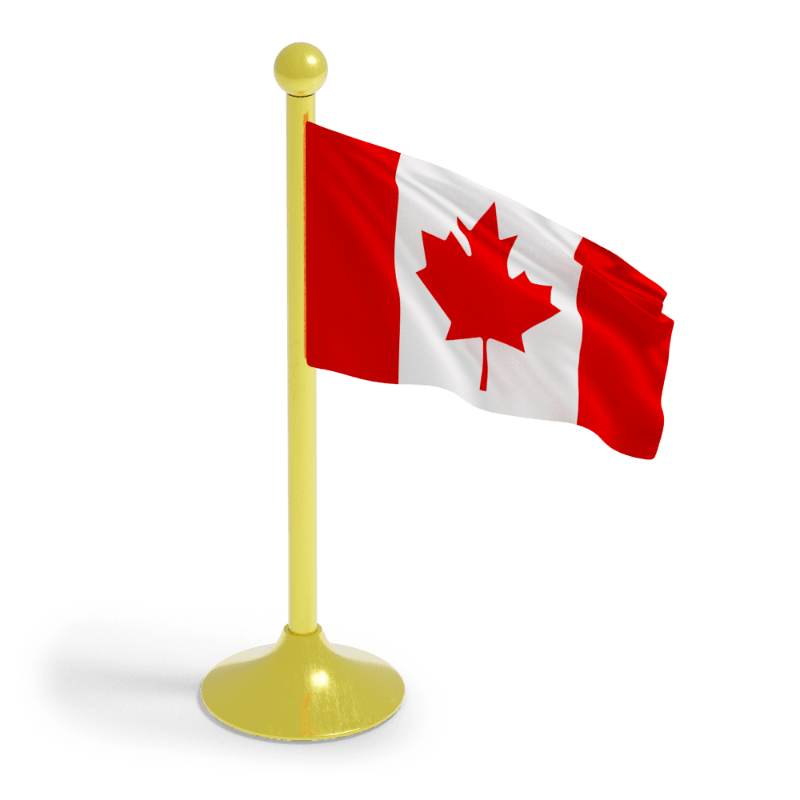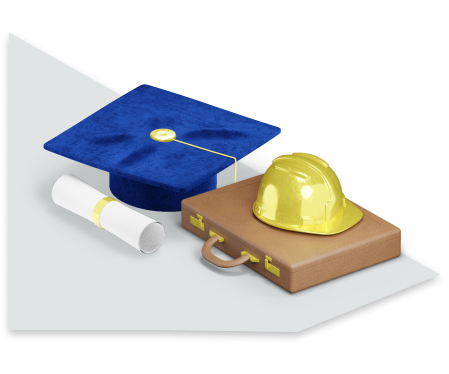Personal Status
An individual's personal status is not normally a primary consideration for the issuance of a diplomatic or official visa (except for heads of state and other relatively rare instances).
For instance, a senior official of a foreign government, travelling on a diplomatic passport, should not be issued a diplomatic visa if the individual intends to enter Canada for commercial negotiations with private enterprises, or on a private visit. In that case, the individual would be issued a regular temporary resident visa, if required, or a courtesy visa, if deemed appropriate.
Another instance would be a student who is the child of a diplomatic agent serving outside Canada and who enters Canada solely to pursue their studies. If not exempt from a temporary resident visa, that person would need a regular temporary resident visa before entering Canada and may require a study permit as well.
Diplomatic or Official Visas on an Ordinary Passport
A diplomatic or official visa may be inserted in an ordinary passport if the purpose of the visit warrants it, such as when a member of a foreign government, travelling on an ordinary passport, enters Canada as a member on an official mission, or when a private citizen (for example, an academic) is included in a state's delegation to a meeting of the International Civil Aviation Organization or a diplomatic conference in Canada.
Documents to Be Submitted
An officer may issue a diplomatic or official visa only on receipt of a written request from the Ministry of Foreign Affairs of the state to which the head of mission or post is accredited, or for which the diplomatic mission or consular post has jurisdiction in visa matters, a written request from a diplomatic mission or a consular post of the state of the applicant's citizenship, or a written request by an international organization listed in Temporary Foreign Worker Guidelines.
In the case of persons entering Canada to take employment as officers of the Secretariat of the International Civil Aviation Organization, a letter to the individual concerned constituting an "offer of employment," indicating their official level at the I.C.A.O. and signed by or on behalf of the Secretary General is required.
Policy
Diplomatic agents, consular officers, or immigration officers may issue diplomatic and official visas without reference to Headquarters. However, if they have the slightest doubt regarding the bona fides of an applicant or their entitlement to a diplomatic or official visa, they should refer the request to the appropriate Immigration, Refugees and Citizenship Canada (IRCC) Geographic division and to GAC Protocol.
Security Checks
Although holders of diplomatic visas are, in principle, exempt from immigration and customs inspection on entry into Canada, they are subject to mandatory security checks at Canadian airports. Officers should apprise holders of diplomatic visas of that requirement whenever possible. If necessary, the persons concerned can obtain more details about that requirement from their own diplomatic missions accredited to Canada.
Multiple-Entry Visas
Generally speaking, diplomats and officials may be issued a multiple-entry visa that is valid for up to 3 years. Some exceptions may apply. This does not apply to foreign officials travelling to Canada to obtain their accreditation in Canada (to assume their diplomatic posting in Canada).
Foreign officials travelling to Canada to obtain their accreditation (to assume their diplomatic posting) are issued a multiple-entry TRV that is valid for 3 months.
These applicants should be advised that the duration of the initial entry into Canada is determined by the Canadian official at the border and that the diplomatic mission in Canada should send their passports, along with the required documents, to the Department of Global Affairs, Protocol (XDC), requesting accreditation or recognition. During the validity of the diplomatic or official acceptance, the applicants do not require any other visa to enter Canada.
Multiple-entry diplomatic or official visas must not be issued to persons who are on assignment to Canada without specific authorization from GAC.
Who Is Entitled to Diplomatic or Official Visas?
You are entitled to Diplomatic or Official Visas if you are granted access by the Canadian government after they confirm you are a government official or working for the government in some capacity. Diplomatic, official and courtesy visas, although not equivalent to the right of entry into Canada, are nonetheless the only evidence of Canada’s consent to official visits by foreign officials.
That consent, under international and domestic law, is a condition of granting diplomatic, consular or official (functional) privileges and immunities (or courtesies), as soon as the holder sets foot on Canadian soil or during transit. Although holders of diplomatic visas are, in principle, exempt from immigration and customs inspection on entry into Canada, they are subject to mandatory security checks at Canadian airports.
Diplomatic, official and similar passports issued by the country of which the foreign national is a citizen or national are only travel documents and do not in themselves determine the type of visa that should be granted.
Ports of Entry Procedures
The Border Service Officer (BSO) will stamp diplomatic or official passports, thereby authorizing entry for a period of six months. Officers will not refer diplomats or officials to secondary examination.
Role of Office of Protocol
During the six-month period, the person’s foreign mission will forward the passport to the Diplomatic Corps Services Division, Office of Protocol, GAC.
The Office of Protocol will issue a diplomatic (D), consular (C), official (J) or international (I) acceptance, which indicates that the person is accredited to Canada and entitled to remain in Canada for the duration of their status.
Visa Exemption for Accredited Persons
Once accredited, accredited persons do not require a temporary resident visa or an e TA to enter Canada.
Spouses, Parents and Dependent Children of Diplomats
People (spouses, fathers, mothers and children) who are recognized as members of the family, forming part of the household, may be granted official visas.
Diplomats’, consular officers’, representatives’ and officials’ dependent children who are under 19 years of age and considered to be members of the family, forming part of the household, are issued acceptances.
Children over 19 years of age are issued acceptances only if they are registered as full-time students.
After turning 25 years of age, dependent children are no longer eligible to receive official acceptance (even if they are still studying) and must change their official status to regular immigration status.
Servants of Diplomats
Members of the official service staff are exempt from the same requirements as foreign representatives (diplomats).
Private servants are issued official (O-1) visas; will receive an official (J) acceptance from the Office of Protocol; will not require a temporary resident visa if they wish to re-enter; do not require a work permit; must undergo a medical examination, and must provide biometric information if from a country or territory whose nationals are required to do so, but are exempt from the biometric fee.
For guidance on employment requirements for diplomatic servants, refer to Temporary Foreign Worker Guidelines.
Live-in Caregivers must meet requirements to be live-in caregivers in Canada; must undergo a medical examination; must provide biometric information if from a country or territory whose nationals are required to do so and must pay the biometric fee; are issued a work permit; do not enjoy any privileges or immunities; require a temporary resident visa to re-enter Canada.
Medical Examinations (Exemptions)
The following people are exempt from having to undergo a medical examination, even if they are from countries where one would normally be required include diplomatic and consular officials entering for official duties only, spouses and dependent children of diplomatic and consular officials, unless they intend to work, and members of the armed forces of a country designated under the Visiting Forces Act who are entering for official duties only.
Biometric Information (Exemptions)
There are many people who can be exempt from providing biometric information.
Diplomats and officials and their family members who have been issued a D-1 or O-1 visa are exempt from providing biometric information, even if they are from a country or territory whose nationals are normally required to do so.
Those issued a courtesy visa are required to provide their biometrics; however, the biometric requirement may be exempted only at the discretion of the Migration Program Manager, in the interest of bilateral relations.
Holders of diplomatic or official passports who are nationals of a biometric-required country or territory, and who have been issued a regular TRV, are required to provide their biometric information but are exempt from the biometric fee.
Private servants of diplomats and officials must provide their biometric information if they are nationals of a biometric-required country or territory, but are exempt from the biometric fee if their employer is travelling to Canada on official business.
Live-in caregivers of diplomats and officials must provide their biometric information when applying for a Temporary resident visa or work permit if they are nationals of a biometric-required country or territory and must pay the biometric fee.







